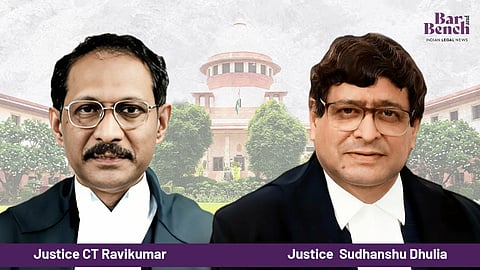
- News
- Columns
- Interviews
- Law Firms
- Apprentice Lawyer
- Legal Jobs
- हिंदी
- ಕನ್ನಡ

The Supreme Court recently criticised a Punjab and Haryana High Court order that effectively declared persons accused in a criminal case to be innocent at the stage of summons itself. [Sandeep Kumar vs State of Haryana and anr]